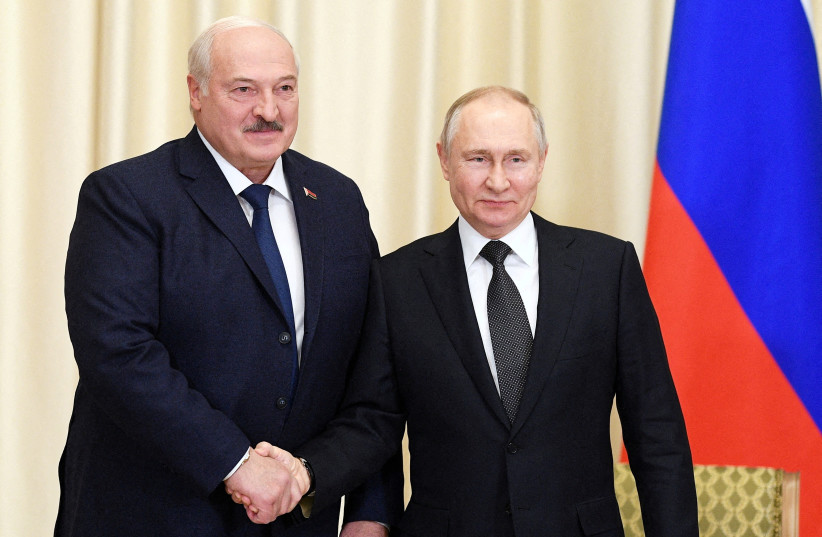Belarus on Tuesday confirmed it will host Russian tactical nuclear weapons, saying the decision was a response to years of Western pressure, including sanctions and what it said was a military-build up by NATO member states near its borders.
The statement from the foreign ministry was the government's first since Russian President Vladimir Putin said on Saturday that Moscow will deploy tactical nuclear weapons in Belarus and would build a nuclear weapons storage facility there.
Although Putin did not say when the deployment would take place, or give further detail, the announcement appeared to pave the way for Moscow's first deployment of nuclear weapons outside its borders since the 1991 Soviet collapse.
The Belarusian foreign ministry said Russia's nuclear bombs offered protection after what it called a campaign of pressure from the United States and its allies aimed at overthrowing the government of President Alexander Lukashenko.
"Over the last two and a half years, the Republic of Belarus has been subjected to unprecedented political, economic, and information pressure from the United States, the United Kingdom, and its NATO allies, as well as the member states of the European Union," the ministry said in a statement.

It complained of "direct and brutal interference" in domestic affairs, in a country that has been ruled with an iron fist for nearly three decades by ex-Soviet collective farm boss Lukashenko.
"In view of these circumstances, and the legitimate concerns and risks in the sphere of national security arising from them, Belarus is forced to respond by strengthening its own security and defense capabilities," the ministry said.
The decision to deploy nuclear weapons in Belarus was one of Moscow's toughest nuclear signals to the West since Russia's invasion of Ukraine last year in what it calls a "special military operation."
Anti-nuclear campaigners have warned that the step, which Putin said would mirror the way the United States deploys nuclear warheads in Europe without relinquishing control of them, will lower the threshold for the use of tactical short-range battlefield nuclear weapons and is unnecessary from a military viewpoint.
Minsk said the Russian nuclear plans would not contravene international non-proliferation agreements as Belarus itself would not have control over the nuclear weapons.
"The training of Belarusian pilots able to fly planes with specific warheads, the modernization of such planes, and the deployment of nuclear warheads on Belarusian territory without giving Minsk control over them or access to the relevant technologies does not in any way contravene the provisions of the non-proliferation treaty," it said.
'Union State'
Lukashenko has repeatedly accused the West of trying to topple him after mass protests against his rule erupted in 2020 in the wake of a presidential election the opposition said he had fraudulently won. Lukashenko said he had won fairly while conducting a sweeping crackdown on his opponents.
Minsk allowed Moscow to use Belarusian territory to send troops into Ukraine on Feb. 24 last year. Its own troops have so far not fought in the war however while stepping up joint military training with Russian forces deployed in Belarus.
Lukashenko, who has long been in the process of gradually constructing what he calls "a union state" with Russia, is due to deliver a state-of-the-nation address on Friday.
